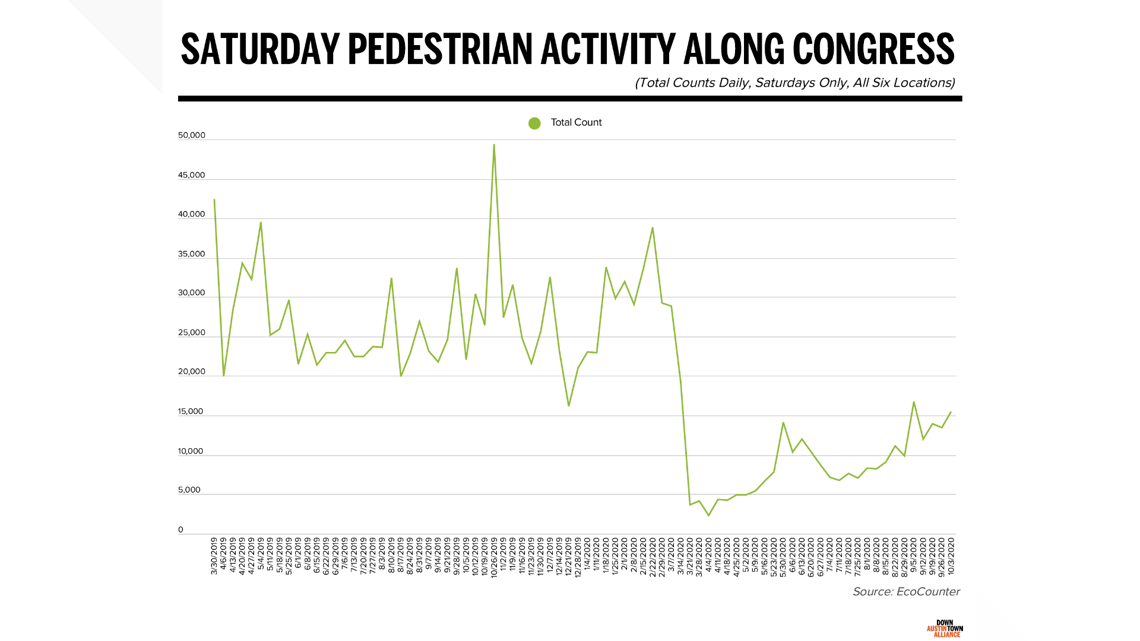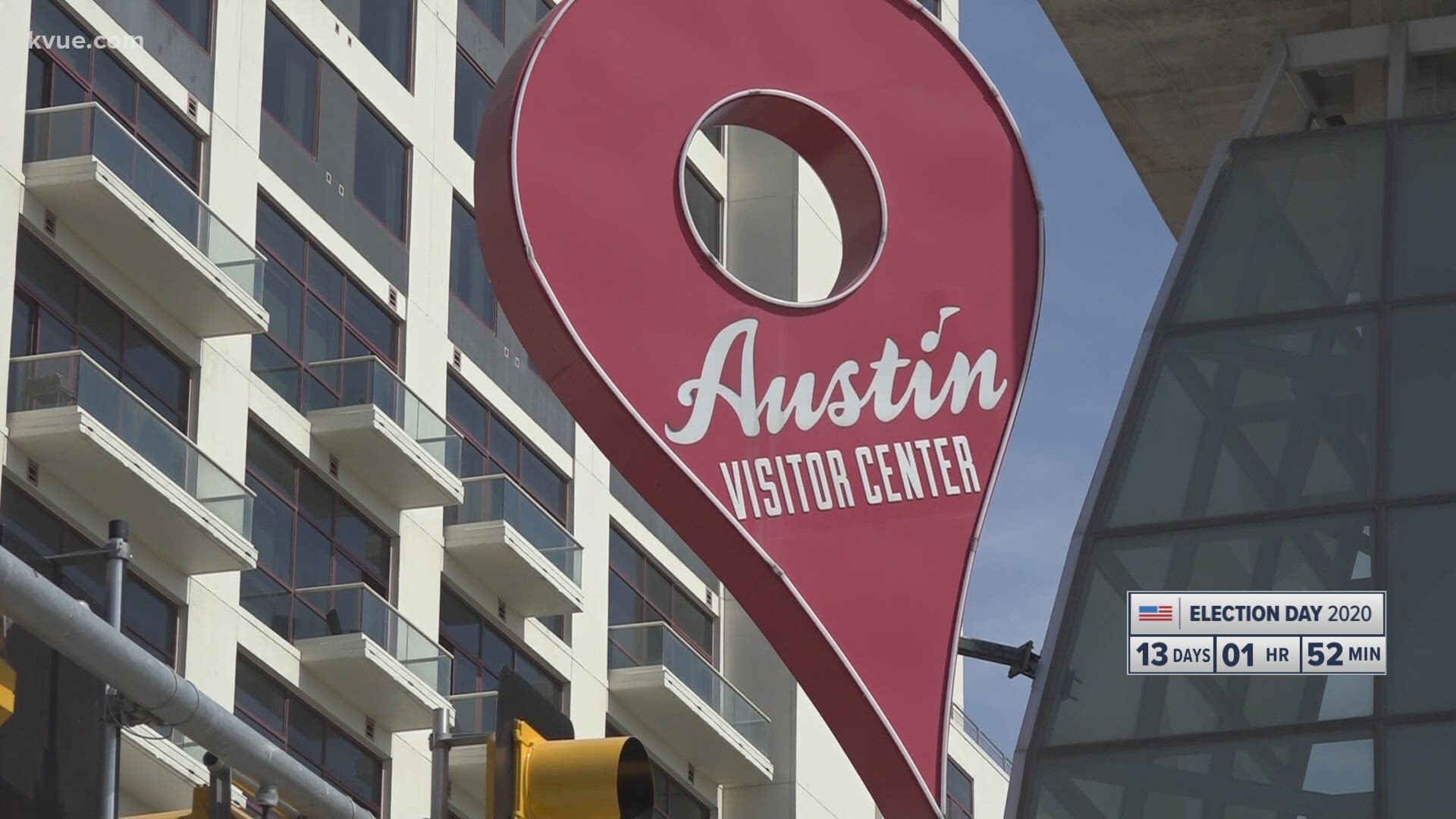AUSTIN, Texas — Seven months ago, businesses were left at a standstill as the coronavirus pandemic hit Austin. Now, as the year comes to an end, the downtown streets are getting busier once again.
According to the Downtown Austin Alliance (DAA), which tracks foot traffic near downtown using a pedestrian counter, South Congress Avenue has seen visitors on the weekends triple since March, specifically on Saturdays.
Since domestic air travel is still down, international travel is virtually nonexistent, and employees are working from home, unlike this time last year. The DAA believes locals make up a big brunt of the crowd, not tourists.
"People are very interested in still navigating through Downtown and using it the way they used to use it before," said Jenell Moffitt, the director of research and analysis at DAA.
Weekdays have not seen much growth, which Moffitt attributed to office buildings continuing to sit empty as employees work from home.


As visitors get out to explore and support local businesses, they are not the only ones filling the streets. Nearly 50% more cars are driving through Downtown Austin, DAA data shows. However, it is still down 28% compared to last year.
"We are really seeing downtown as being this economic, vibrant hub. Part of that has to do with the strength of our retail businesses," said Moffitt, regarding the importance of increasing business traffic downtown.
Even with these increases, the impact of the pandemic is still hitting businesses hard as they attempt to get back to normal. Some longtime businesses continue to face the unfortunate fate of having to close their doors.
RELATED:
While some restaurants and retailers are allowed to welcome more guests, city leaders continue to discourage large gatherings, which is hurting hotels citywide.
This year, Austin hotels have lost $569 million in revenue, with $365 million of those losses coming from hotels downtown. That is a drop of 64% compared to last year, according to Visit Austin.
However, like other industries, hotels are seeing the gap slowly close, too. In May, hotels had 60% less guests check-in compared to last year, but in September they were behind by 46%.
Conventions and large events such as Austin City Limits Festival and Formula 1 would usually boost the amount of visitors at hotels every fall, but that is not expected this year since large gatherings remain canceled.
Tom Noonan, president of Visit Austin, explained that this shows the importance of the impact large conventions and events have on the economic prosperity of the city.
As the holiday season approaches, Noonan is hopeful the city will attract more visitors, which will ultimately trickle down to increased business for retailers and restaurants owners who are in desperate need to feel normal again.
PEOPLE ARE ALSO READING:

